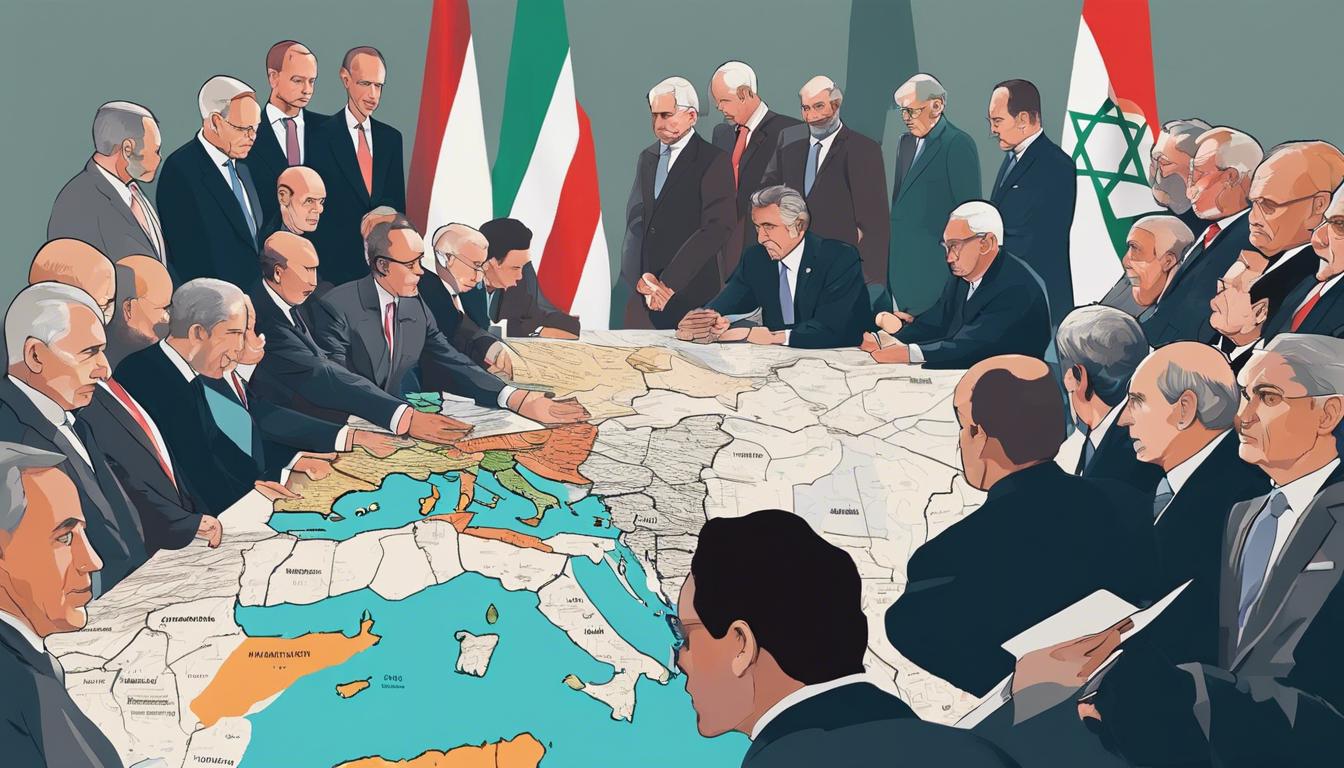Global leaders, including the UK and US, have strongly condemned the recent Iranian attacks on Israel, urging diplomatic measures to prevent further escalation of regional tensions. The UK’s Royal Air Force engaged by intercepting Iranian drones aimed at defending Israel.
G7 leaders, including those from the UK and US, have condemned Iran’s recent attack on Israel, urging measures to prevent further escalation in the region. This reaction followed the UK’s Royal Air Force (RAF) engagement, where British jets downed Iranian drones as a defensive measure linked to the attack on Israel.
The conflict traces back to an incident where Iran executed a significant drone and missile assault on Israel. This offensive was stated to be a response to a previous strike on an Iranian consular facility in Syria. The attack represented Tehran’s first direct military action against Israel, substantially increasing regional tensions.
The missile and drone assault involved over 330 projectiles targeting Israel, which claims to have intercepted 99% of these with assistance from allies like the US and the UK. Despite the high interception rate, some missiles breached Israel’s defenses, causing minor damage to an air base.
In response to these hostilities, Israel has signaled potential retaliatory actions against Iran. US President Joe Biden has also been active, convening a G7 meeting to discuss and coordinate a diplomatic response aimed at stabilizing the situation. The UK’s involvement was confirmed by Prime Minister Rishi Sunak, who underscored the necessity of a measured response to the conflict.
The situation continues to draw significant international concern. UK’s Foreign Secretary, David Cameron, termed Iran’s actions as “profoundly dangerous,” and diplomatic efforts include direct communications urging restraint from both Israel and Iran. The international community, via the G7, expressed solidarity with Israel and a readiness to address any further destabilizing actions by Iran.
As the global leaders monitor the unfolding events, the emphasis remains on diplomatic efforts to ensure further violence does not escalate, potentially destabilizing the region further.













